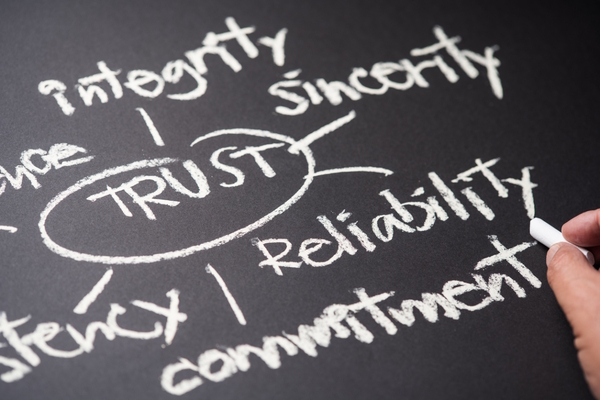Digital identity and digital minimalism: a cultural divide
Petter Neby at Punkt argues that the future of technology will be defined not by more data, more tracking, and more apps, but by deliberate disconnection

A growing divide between digital identity and minimalism is emerging. On one side, governments and tech giants are accelerating efforts to integrate national digital ID systems and frictionless authentication into everyday transactions. On the other, a cultural shift toward digital minimalism is beginning to gain traction. This paradox sees society pulled between embracing seamless digital identification with a desire for a more controlled, less intrusive digital experience.
The push for digital IDs
Globally, digital identification is being seen as the next leap in efficiency and security. From Singapore to India, national digital IDs allow citizens to verify their identity once and reuse those credentials across services from banking to travel. In Europe, the European Digital Identity Wallet (EUDI) aims to give every citizen a unified electronic ID by 2026. The UK is piloting its own Gov.UK digital wallet, while Apple now allows residents of several U.S. states to store drivers’ licences or IDs in the Apple Wallet, offering contactless proof of identity.
The appeal is unsurprising. The rollouts will contribute to more convenience, speed, and reduced fraud. A global identity verification market worth nearly $12 billion reflects surging investment in these systems. Russia is even preparing a state “super-app” combining messaging, e-services, and digital IDs mandated to come pre-installed on devices. Across sectors, the aim is to make proving “who you are” instantaneous.
Desire for digital minimalism
With the push for digital IDs, we are beginning to see a rise in the desire for digital minimalism, especially among younger generations. A recent survey reveals that nearly 70% of 16- to 21-year-olds feel worse about themselves after spending time on social media, indicating a growing desire for people to regain control over their tech use.
Moreover, after years of breaches and intrusive advertising, many people feel overwhelmed by privacy management itself. Studies show up to 97% of users accept terms and privacy policies without reading them. The philosophy of data minimalisation (or, in other words, collecting only what is necessary) is seemingly gaining traction both as a regulatory principle and a personal ethic. For some, using a minimalist phone or deleting social media can be an act of digital self-defence. The less data shared, the less there is to be misused.
There’s also a mental health dimension. Constant connectivity has been linked to stress and distraction. A 2025 EY study revealed that almost half (47%) of 18 to 34-year-olds view their online activities as more disruptive than beneficial to their well-being. Increasingly, people are now making an active effort to moderate their digital use through app limits, “phone fasts,” or screen-free weekends.
Two competing visions
These opposing forces illustrate a widening cultural divide in how we relate to technology. The digital ID vision promises seamless convenience with one tap or face scan for every interaction. The minimalist vision, conversely, prioritises autonomy and simplicity. The concerns driving digital restraint revolve around surveillance, mental overload, and autonomy. Many will be uneasy with being tracked or profiled at every turn, however convenient that may be. Younger generations, raised in a fully connected world, appear to be especially attuned to the mental toll.
For policymakers and industry leaders, this divergence poses serious questions. As digital ID systems advance, will they respect citizens’ rights to opt out? Will analogue or low-tech alternatives remain available for those who prefer them? Conversely, as consumers adopt minimalist habits, will tech companies design products that are less extractive of data and attention? Some hopeful signs exist. Privacy-by-design principles are gaining ground, and decentralised ID models (where users control their own credentials) offer a middle path. In an ideal world, the convenience of digital identification can co-exist with the restraint and respect for autonomy that digital minimalists demand.
Ultimately, society is negotiating how deeply technology should intertwine with identity and daily life. Many people are able to balance both worlds using digital tools while consciously limiting their reach. Yet the challenge remains to ensure that, as our identities move online, we remain in control. That control may not come from technology itself, but from the choices we make about what to share, what to simplify, and when to disconnect.
Petter Neby is Founder and CEO of Punkt
Main image courtesy of iStckPhoto.com and gremlin

Business Reporter Team
Most Viewed
Winston House, 3rd Floor, Units 306-309, 2-4 Dollis Park, London, N3 1HF
23-29 Hendon Lane, London, N3 1RT
020 8349 4363
© 2025, Lyonsdown Limited. Business Reporter® is a registered trademark of Lyonsdown Ltd. VAT registration number: 830519543





